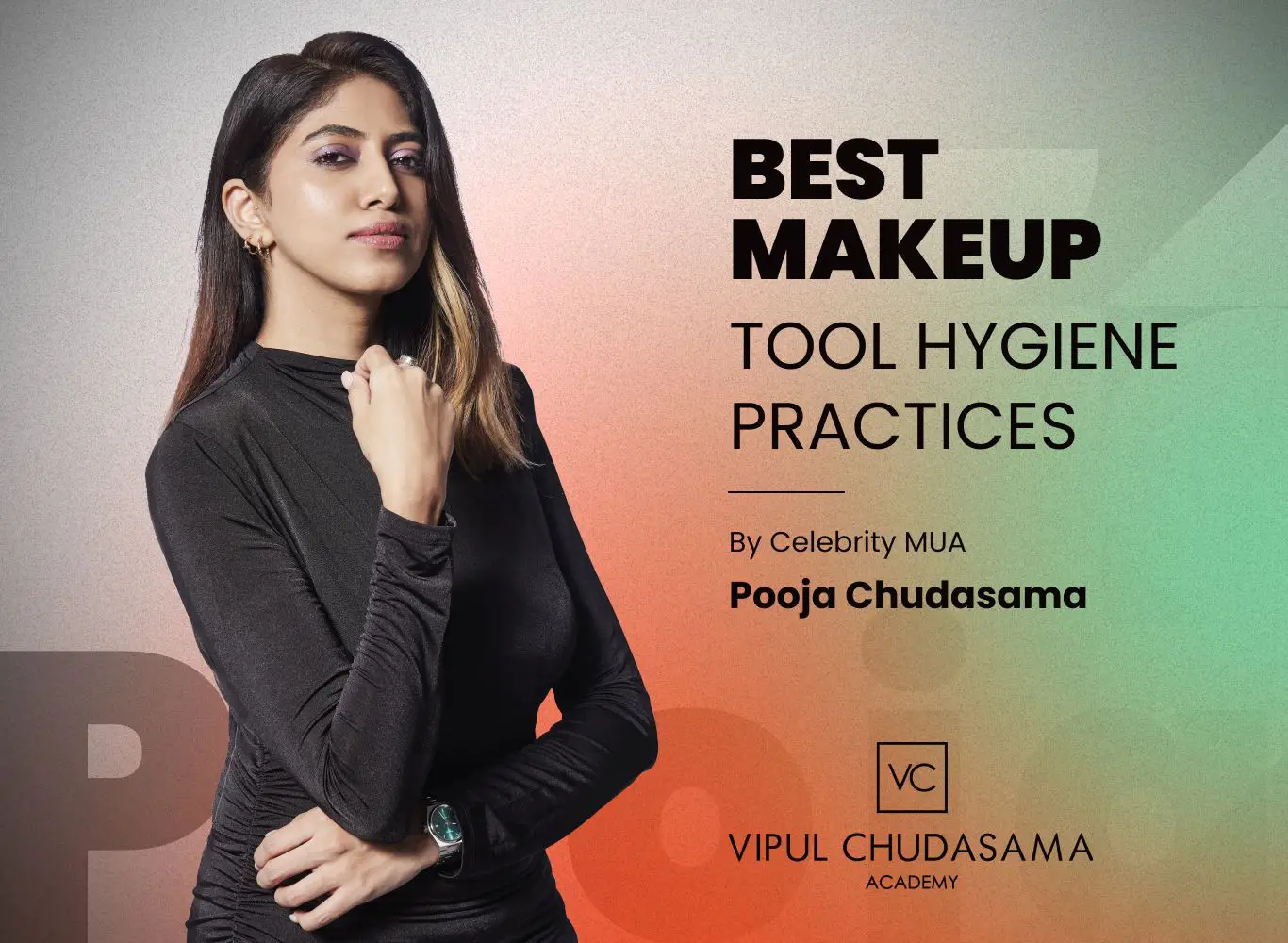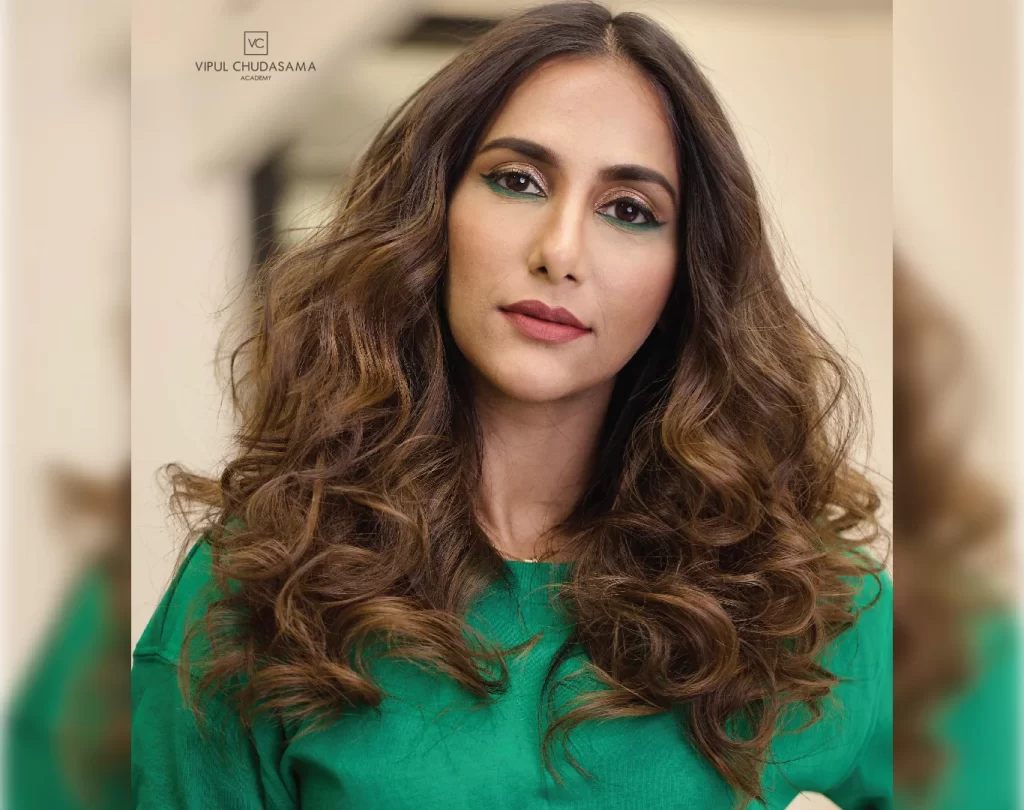Explore essential tips for maintaining cleanliness with your makeup tools in this insightful guide by celebrity MUA Pooja Chudasama.
In the glamorous world of makeup artistry, where creativity and skill blend effortlessly, there’s an essential element that often takes backstage: sanitation and hygiene. Whether you’re a professional makeup artist, an enthusiast experimenting at home, or a student honing your craft, understanding and practicing proper hygiene is crucial for the longevity of your tools and the health and safety of your clients and yourself.
Read some essential tips from our academy educator and celebrity makeup artist, Pooja Chuadasama.
Why is Sanitation Important?
Best Practices for Maintaining Cleanliness and Hygiene
1.Cleanse and Disinfect Tools Regularly:
Clean your makeup brushes, sponges, and other tools after each use. Use gentle, antibacterial soap or brush cleansers to remove makeup residue and bacteria. Follow up with a disinfectant spray or wipes designed for makeup tools to ensure thorough sanitation.
2.Avoid Double-Dipping:
Never double-dip brushes or applicators directly into makeup products, mainly if used on someone else's skin. Instead, dispense products onto a palette or the back of your hand to avoid cross-contamination.
3.Use Disposable Applicators When Necessary:
For products like mascara, lip gloss, and cream eyeshadows that come into direct contact with mucous membranes, consider using disposable applicators whenever possible. This reduces the risk of transmitting infections between clients.
4.Sanitize Your Makeup Kit:
Regularly clean and sanitize your makeup kit, including palettes, containers, and storage compartments. Dispose of expired or contaminated products promptly to maintain a hygienic workspace.
5.Wash Your Hands:
Before and after each client or makeup application, wash your hands thoroughly with soap and warm water. This simple practice minimizes the transfer of germs from your hands to your clients' skin or makeup products.
6.Educate Your Clients:
Encourage clients to disclose skin conditions, allergies, or sensitivities before applying makeup. This helps you select suitable products and take necessary precautions to avoid adverse reactions.
Join us in prioritizing hygiene in makeup artistry because beauty should always be clean, safe, and healthy. To learn such tips, enroll in our MAKEUP PRO Course. We also provide other courses for makeup and self-grooming. Feel free to give us a call for further information at +91 9769100070.






